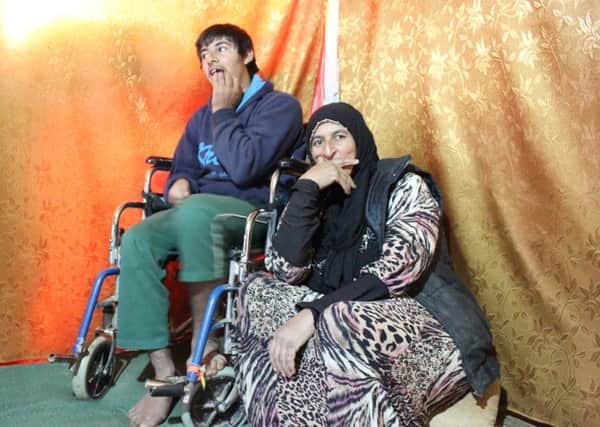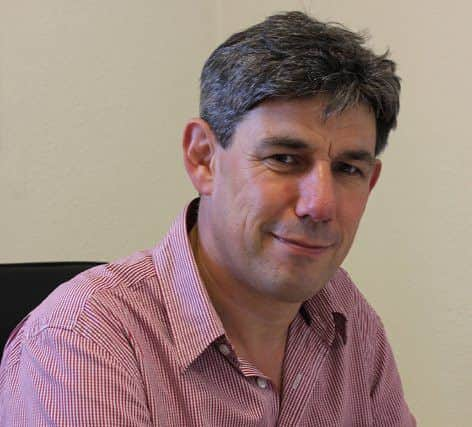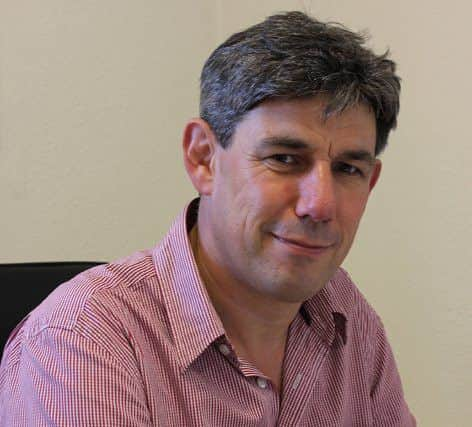Remember, Jesus was also a refugee forced to flee the threat of murder


“We were caught in the middle of the fighting, with shells going off around us, whizzing overhead,” Kamila said. “We were very scared, so we fled Raqqa with everything we could grab and took the bus to Damascus, and then to Lebanon.”
Mute and clearly quite disturbed, Mahmood kept grabbing my hand and kissing it, while his mum talked. He clutched her head and kissed it too, trying to take off her veil. “He’s worried you’re going take me away from him,” she explained with a gentle smile.
Advertisement
Hide AdAdvertisement
Hide AdSitting in a neighbouring hut, we met Khalil, the youngest member of the camp, who was born six days ago in the local hospital. Khalil is the latest in a whole generation of children who have never known anything other than a life of basic existence in the squalor of the camp.


Camp – what a glorified term that is for such meagre conditions. Named after the landowner who allowed the refugees to settle on his land for rent paid by the United Nations, Camp Moussa el Talib is a cramped collection of flimsy huts, packed very closely together, with almost no amenities. I saw for myself, two days after the last rain, the paths are liquid mud, with children and adults alike paddling through the sloppy mess, some with wellingtons, but others just in sandals. The filthy water lying around is a major public health hazard.
With plastic tarpaulins for roofs and walls, lined with sheets and blankets for decoration and warmth, the huts are poorly insulated and offer little protection from the cold. Winter is fast approaching – the temperature at night has already dropped to 3C and will soon be well below freezing.
Despite the woodburning stoves that take the edge off the bitter cold, life is soon to become even more inhospitable, as people will be left to huddle together in their huts for warmth. Dr Michael, Caritas Lebanon’s doctor who works from a mobile medical clinic that SCIAF funds, told me that the most frequent cases he treats are children’s burns from the stoves, and respiratory complaints caused by people living so closely together in these conditions.
The scale of the crisis is difficult to comprehend and the situation in Camp Moussa el Talib is replicated in many places in the country, and throughout the region. More than 1.5 million Syrian refugees have fled to the Lebanon alone, making them one quarter of the current population in the country. This is equivalent to Scotland receiving two million refugees – more than 1,000 times the number that has actually arrived.


It’s incredible that, despite all this, people maintain such dignity, courage and hope. But supporting refugee families, and the poor communities in Lebanon and Jordan who have welcomed them into their country, is a massive task.
Working as part of the global Caritas family of Catholic international aid agencies, SCIAF is helping to provide food, medical care, shelter, stoves, blankets and mattresses to people who need them most. We’re also helping refugee children who’ve been traumatised by the horrors they’ve seen get the specialist therapy they need, and an education.
This is only possible thanks to the enormous generosity of our supporters. As money runs low, we’ve launched an emergency Christmas appeal for Syria and surrounding countries, to help us continue this practical help.
Advertisement
Hide AdAdvertisement
Hide AdI’d like to thank everyone who has supported our work since the crisis began in 2011. However, with no end in sight to the war in Syria, I urge everyone to give whatever they can to help us continue our lifesaving work.


The war in Syria is robbing a whole generation of a decent life. The very things we take for granted – peace, a stable home with friends and family, food and warmth – have been replaced by fear, violence and uncertainty.
This Christmas, please spare a thought for the millions of children, women and men who have fled their homes and need our help. What better way to celebrate the birth of Jesus – who, while still newborn, found himself a refugee, fleeing persecution and murder – than by caring for those who find themselves in a similar situation now?
Alistair Dutton is Director of the Scottish Catholic International Aid Fund (SCIAF) and has recently returned from Lebanon’s Bekaa Valley close to the Syrian border. To donate to SCIAF’s emergency Christmas appeal to help those affected by the Syrian conflict please visit www.sciaf.org.uk/donate or call 0141 354 5555.